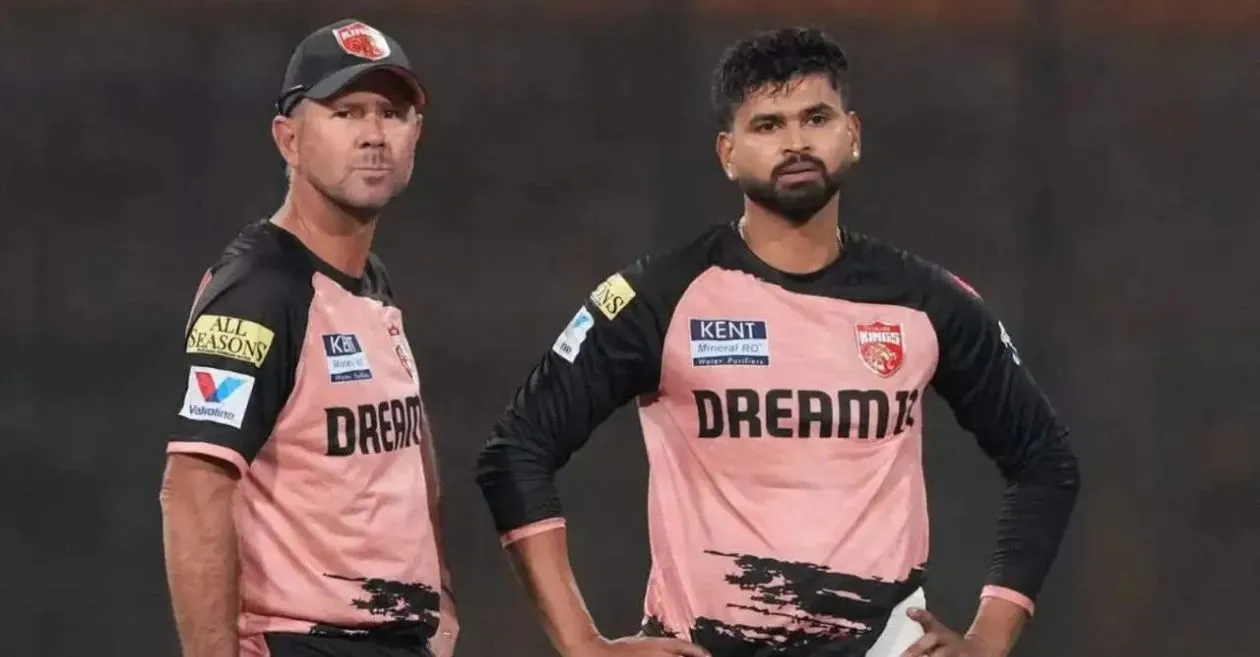Table of Contents
In the competitive arena of cricket, exceptional partnerships often define success both on and off the field. The collaboration between Shreyas Iyer and Ricky Ponting in IPL 2025 stands as a testament to how mentor-protégé relationships can elevate the game. Beginning at Delhi Capitals and now continuing at Punjab Kings, their partnership exemplifies cricket leadership at its finest—built on mutual respect, shared vision, and innovative thinking.
Shreyas Iyer and Ricky Ponting: A foundation of trust and empowerment
Iyer’s profound admiration for Ponting stems from the Australian legend’s democratic approach to coaching. “Ricky gives you freedom regardless of your stature—whether you’re a newcomer or a senior player,” Iyer recently shared in an interview with Star Sports. This philosophy has created an environment where players feel valued for their contributions rather than their reputation.
Ponting’s experience as Australia‘s most successful captain translates into his coaching style, where he recognizes that empowerment often leads to improved performance. By trusting players to make decisions and take ownership, he cultivates leadership qualities throughout the team. This approach has particularly benefited Iyer, whose captaincy skills have flourished under Ponting’s guidance.
Captain @ShreyasIyer15 shares his experience of working with the Aussie great @RickyPonting at @PunjabKingsIPL and how his presence influences the squad.
Will this captain-coach duo guide PBKS to a hat-trick of wins? 🔥🏏#IPLonJioStar 👉 #PBKSvRR | SAT, 5 APR, 6:30 PM | LIVE… pic.twitter.com/YpcqntkMLW
— Star Sports (@StarSportsIndia) April 5, 2025
Also READ: IPL 2025: Rishabh Pant faces backlash over his batting form as satirical video sparks sister’s outrage
How Ponting transforms team dynamics?
What distinguishes Ponting from other coaches is his unwavering commitment to treating every squad member equally. Iyer highlighted this quality when he observed, “During practice sessions, Ponting ensures everyone gets whatever they need. Only when all players are satisfied and content do we leave the ground.”
This meticulous attention to individual needs creates a culture where players feel personally invested in the team’s success. By eliminating hierarchies that often plague cricket teams, Ponting has pioneered a more collaborative approach to the sport. His methods focus on creating an environment where communication flows freely and every voice matters, regardless of experience level.
From DC success to PBKS ambitions
The Iyer-Ponting collaboration first captured attention during their tenure at Delhi Capitals, where they transformed an underperforming team into serious contenders. Under their leadership, Delhi reached their first-ever IPL final in 2020, demonstrating how effective their partnership could be in elevating team performance.
Now at Punjab Kings, both Iyer and Ponting face the challenge of replicating this success with a new franchise. Punjab’s significant investment in acquiring Iyer reflects their confidence in this partnership’s potential. With Ponting identifying Iyer as a “non-negotiable” in the auction strategy, it’s clear that their professional relationship remains central to their plans for success.
Rebuilding and reimagining: The Punjab Kings project
Ponting’s vision for Punjab Kings represents a comprehensive overhaul of the franchise’s approach. “I am trying to make things different, rebuild, and have the right people around me,” Ponting stated when discussing his strategy. This philosophy explains why securing Iyer was paramount—he represents a cornerstone upon which Ponting can build his vision.
Alongside Iyer, Ponting has identified other key players like Arshdeep Singh and Yuzvendra Chahal as essential components of his blueprint for success. This strategic approach to team-building demonstrates Ponting’s understanding that cricket success requires carefully balanced skills rather than just collecting star players.
The upcoming season will test this partnership in new ways, challenging them to adapt their methods to different players and circumstances. However, if their past collaboration is any indication, their ability to create cohesive team environments and nurture talent will likely translate into competitive performances and perhaps even championship contention.
